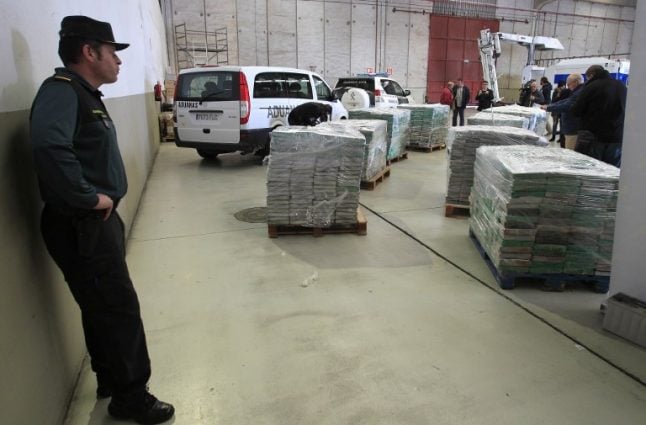The stark warning came days after some 40 people — some of whom are thought to be linked to drug mafias — attacked nine Guardia Civil police officers on their time off in Algeciras, part of the southern province of Cadiz, a drug trafficking hotspot.
“Before the mafias avoided us, now this new generation of narcos are challenging security forces directly, they use guns, and they have professionals, we're now noting the presence of sicarios,” Alberto Moya, head of the AUGC Guardia Civil union, told Spanish radio.
“These people employ legions of youth,” he added, pointing to the high unemployment rate in this poorer area of southern Spain as one of the reasons.
“These people can pay salaries that not even a multinational could pay its executives.”
He added that many police agents didn't want to be posted in the area “because their work is difficult, they can be recognised, they fear for their family.”
READ MORE:
- 80 per cent of European hashish smuggled in every year to Spanish town near Gibraltar
- Narcos in southern Spain grow increasingly brazen

This is not the first incident in the area, where drug traffickers have recently also unloaded drugs in broad daylight and stormed a hospital to free a suspected drug trafficker.
But Interior Minister Juan Ignacio Zoido sought to play down Saturday's incident, in which one of the nine police officers who had been eating at a restaurant was forced to fire his gun in the air to stop the attack.
It was “an act of vandalism, of street violence that doesn't have anything to do with other issues,” he told reporters, apparently denying there was a link with drug trafficking.
He added that out of 10 of the attackers already identified by police, only two had previous convictions linked to drug trafficking. At least one of them has already been detained.
Zoido insisted that more police had been sent to the area, but that social measures were also needed such as fighting youth unemployment.
According to the interior ministry, 40 percent of all drugs that come to Spain arrive via the province of Cadiz.



 Please whitelist us to continue reading.
Please whitelist us to continue reading.